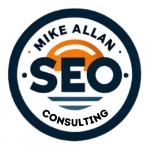
Understanding search intent is at the heart of a successful SEO strategy. In this article, we’ll demystify search intent, explain its importance, and provide actionable tips for identifying it to optimize your content and drive traffic to your website.
What is Search Intent?
Search intent, also known as user intent or keyword intent, refers to the primary goal a user has in mind when typing a query into a search engine. Essentially, it’s the “why” behind a search. By understanding the intent behind a search, content creators and marketers can create content aligning with users’ needs. This content makes it more likely for their web pages to rank higher in search engine results pages (SERPs).
There are four main types of search intent:
- Informational: Users are looking for information or answers to their questions. Examples include “what is search intent” or “how to change a tire.”
- Navigational: Users are trying to find a specific website or webpage. Examples include “Facebook login” or “SEO 101 Basics course.”
- Transactional: Users are ready to make a purchase or complete a task. Examples include “buy iPhone 13” or “download SEO eBook.”
- Commercial investigation: Users are researching products or services before deciding. Examples include “best SEO tools” or “top smartphones 2023.”
How to Determine Intent
Now that you know the different types, it’s essential to understand how to determine the intent behind your target keywords. Here are some strategies to help you identify search intent:
- Analyze SERPs: Analyze the content currently ranking in the SERPs for your target keywords. Examine the top-ranking pages to see if they predominantly provide information, sell products, or offer comparisons. This can give you insight into the type of content your audience is searching for.
- Use Keyword Modifiers: Certain words or phrases give clues about the searcher’s intent. For example, words like “how,” “what,” and “why” often indicate informational intent, while words like “buy,” “download,” or “price” suggest transactional intent.
- Leverage Keyword Research Tools: Many keyword research tools provide information on search intent, such as Google Keyword Planner, Ahrefs, or SEMrush. These tools can help you identify the predominant intent for a given keyword and suggest related keywords with different intents.
Creating Content Based on Search Intent
Once you’ve identified the intent for your target keywords, it’s time to get down to the nitty-gritty of creating helpful content aligned with the intent. Try out these tips for tailoring your content:
- Informational Intent: Create informative and well-researched content that answers users’ questions or provides in-depth information. This can include blog posts, tutorials, or FAQ pages.
- Navigational Intent: Make sure your website is easy to navigate and optimized for your brand or product name. Ensure that your meta titles and descriptions accurately reflect the page’s content.
- Transactional Intent: Create clear, compelling product descriptions with a straightforward call-to-action (CTA). Include user reviews, pricing, and shipping information to make the decision-making process easier for the user.
- Commercial Investigation Intent: Produce content showcasing the benefits and features of your products or services. This can include comparison articles, product reviews, or case studies.
Understanding search intent is the cornerstone of a successful SEO strategy. Determining the intent behind your target keywords and tailoring your content accordingly ensures your website stays relevant and engaging for your audience. This, in turn, can lead to higher rankings, increased organic traffic, and, ultimately, more conversions. Which can also mean more $$$ in your pocket.
However, mastering search intent is only the tip of the iceberg when optimizing your website for success. If you’re serious about improving your online presence and driving growth, our SEO 101 Basics course is the perfect starting point. By enrolling in our comprehensive course, you’ll gain access to valuable insights, expert guidance, and practical tips to help you navigate the ever-changing landscape of SEO.
Don’t miss this opportunity to unlock your website’s full potential. Sign up for our SEO 101 Basics course today. Take the first step toward dominating the SERPs and achieving online success!


